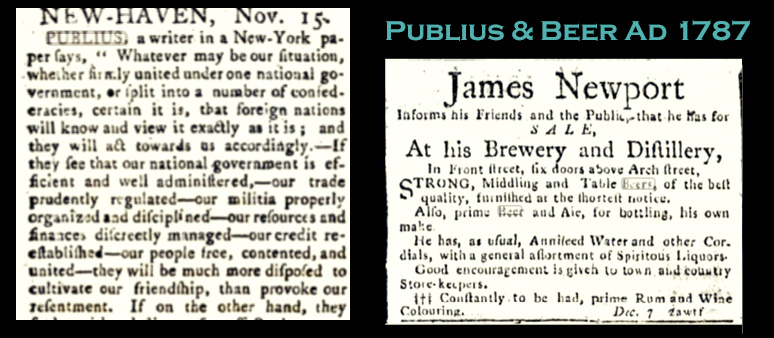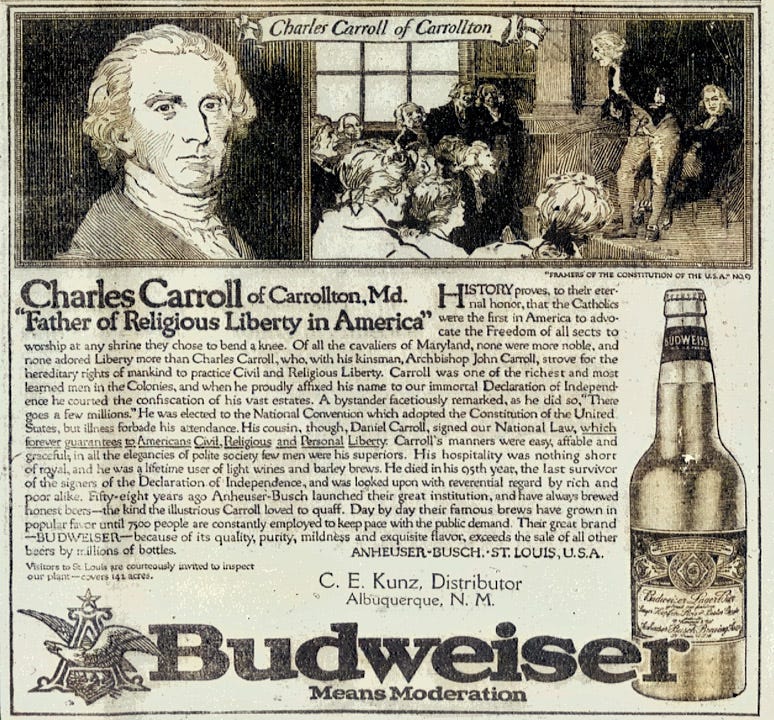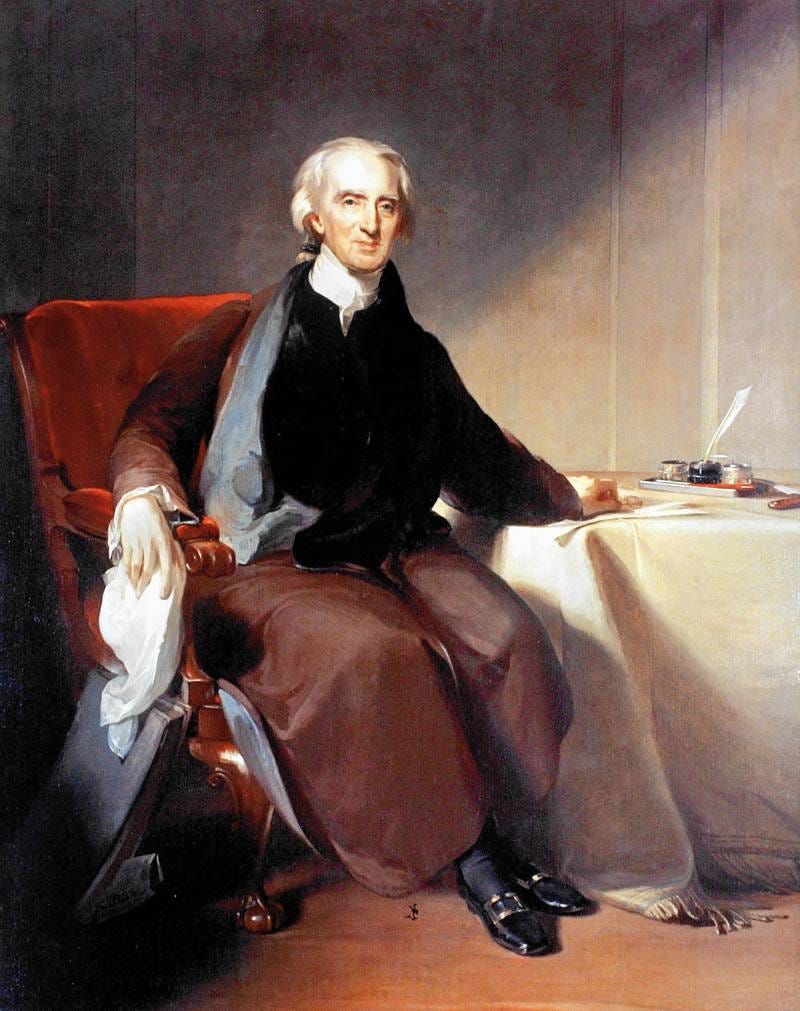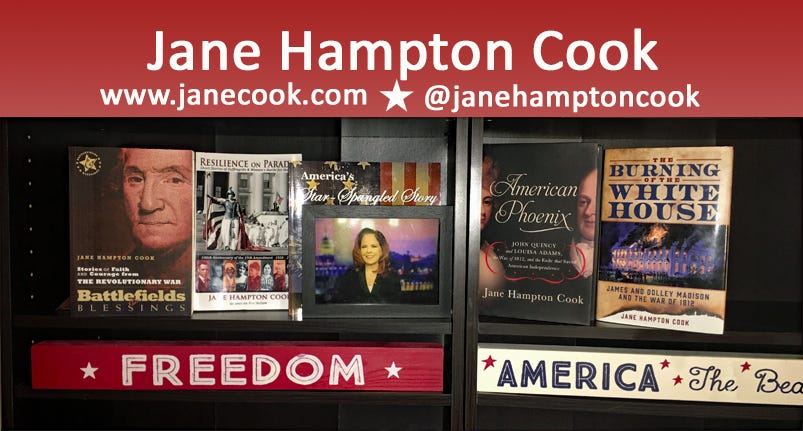When a Beer Ad Promoted Religious Liberty
This Constitution Day, discover how a beer ad celebrated religious tolerance, freedom and sovereignty. And no, it wasn't Samuel Adams.
A common saying is that politics is downstream from culture.
A positive example of this took place among the pages of newspapers shortly after the Constitutional Convention released the new U.S. Constitution on September 17, 1787.
For weeks, Americans opened their newspapers, which were funded by ads for beer and other products, to read the latest pro-Constitution editorial by Publius, whose 85 essays became the Federalist Papers. Americans also read opposition articles, proving that their culture was healthy enough to tolerate different political viewpoints.
In contrast, Superbowl ads in 2022 depicted the Declaration of Independence and the founders as comical and silly to sell Bitcoins or business products. What does this say about our culture?
While today's commercials may be entertaining and reveal the need for workplace efficiency, on this Constitution Day we can learn from a 1915 beer ad that showed respect for our freedoms, including religious liberty, and highlighted specific founding fathers.
And no, the beer wasn’t Samuel Adams Boston Lager, which wasn't launched as a brand until 1985.
1915 Tabloid Advertisement, Albuquerque Morning Journal
Charles Carroll of Carrollton, Maryland.
“Father of Religious Liberty in America.”
“History proves, to their eternal honor, that the Catholics were the first in America to advocate the Freedom of all sects to worship at any shrine they chose to bend a knee. Of all the cavaliers of Maryland, none were more noble, and none adored Liberty more than Charles Carroll, who, with his kinsman, Archbishop John Carroll, strove for the hereditary rights of mankind to practice Civil and Religious Liberty. Carroll was one of the richest and most learned men in the colonies, when he proudly affixed his name to our immortal Declaration of Independence, he courted the confiscation of his vast states.
“A bystander facetiously remarked as he did so, ‘there goes a few millions.’
“He was elected to the National Convention, which adopted the Constitution of the United States, but illness forbade his attendance. His cousin, though, Daniel Carroll, signed our national law, which forever guarantees to Americans Civil, Religious and Personal Liberty. Carroll’s manners were easy, affable and graceful, in all the elegancies of polite society few men were his superiors. His hospitality was nothing short of royal, and he was a lifetime user of light wines and barley brews. He died in his 95th year, the last survivor of the signers of the Declaration of Independence, and was looked upon with reverential regard by rich and poor alike.
“Fifty-eight years ago Anheuser-Busch launched their great institution, and have always brewed honest beers—the kind the illustrious Carroll loved to quaff. Day by day their famous brews have grown in popular favor until 7,500 people are constantly employed to keep pace with the public demand. Their great brand—Budweiser—because of its quality, purity, mildness and exquisite flavor, exceeds the sale of all other beers by trillions of bottles. Anheuser-Busch St. Louis, USA.”
What this advertisement did not reveal is that although Maryland was founded as a Catholic colony in 1632, King William stopped allowing Catholics to hold public office in 1690.
At the time Carroll became the only Catholic to sign the Declaration of Independence, this 39-year-old couldn’t hold public office in his native Maryland because of his religious beliefs. This injustice was later corrected, and Carroll was elected to the Maryland Senate in 1781 and tapped by the Maryland legislature for the first U.S. Senate.
What does this beer ad tell us? Americans in 1915 were so confident and united in their sovereignty as a free nation, that Budweiser released an ad promoting religious liberty. This type of ad was called a tabloid because it mimicked a short news article.
Overcoming religious differences and tolerating people of different beliefs were the first challenges Americans faced when uniting as the United States of America in the 1770s. The founders had to overcome their biases and prejudices against different denominations of Protestantism, as well as Catholicism and Judaism. Reflecting on the Revolutionary War, John Adams described the difficulty of uniting this diversity in an 1818 letter to a magazine editor for the Niles Weekly Register.
“The colonies had grown up under constitutions of government, so different, there was so great a variety of religions, they were composed of so many different nations, their customs, manners and habits had so little resemblance . . . and their knowledge of each other so imperfect, that to unite them in the same principles in theory and the same system of action was certainly a very difficult enterprise,” Adams wrote.
“The complete accomplishment of it, in so short a time and by such simple means, was perhaps a singular example in the history of mankind. Thirteen clocks were made to strike together; a perfection of mechanism which no artist had ever before affected,” John Adams, Feb. 13, 1818.
Our culture is at its best when it encourages diverse clocks to strike in unison over our core constitutional freedoms and shared values. We need businesses and brands to once again embrace and promote the freedoms of our founding that apply to all today.









Excellent piece that helps put in context the founder’s perspective on religious freedom.